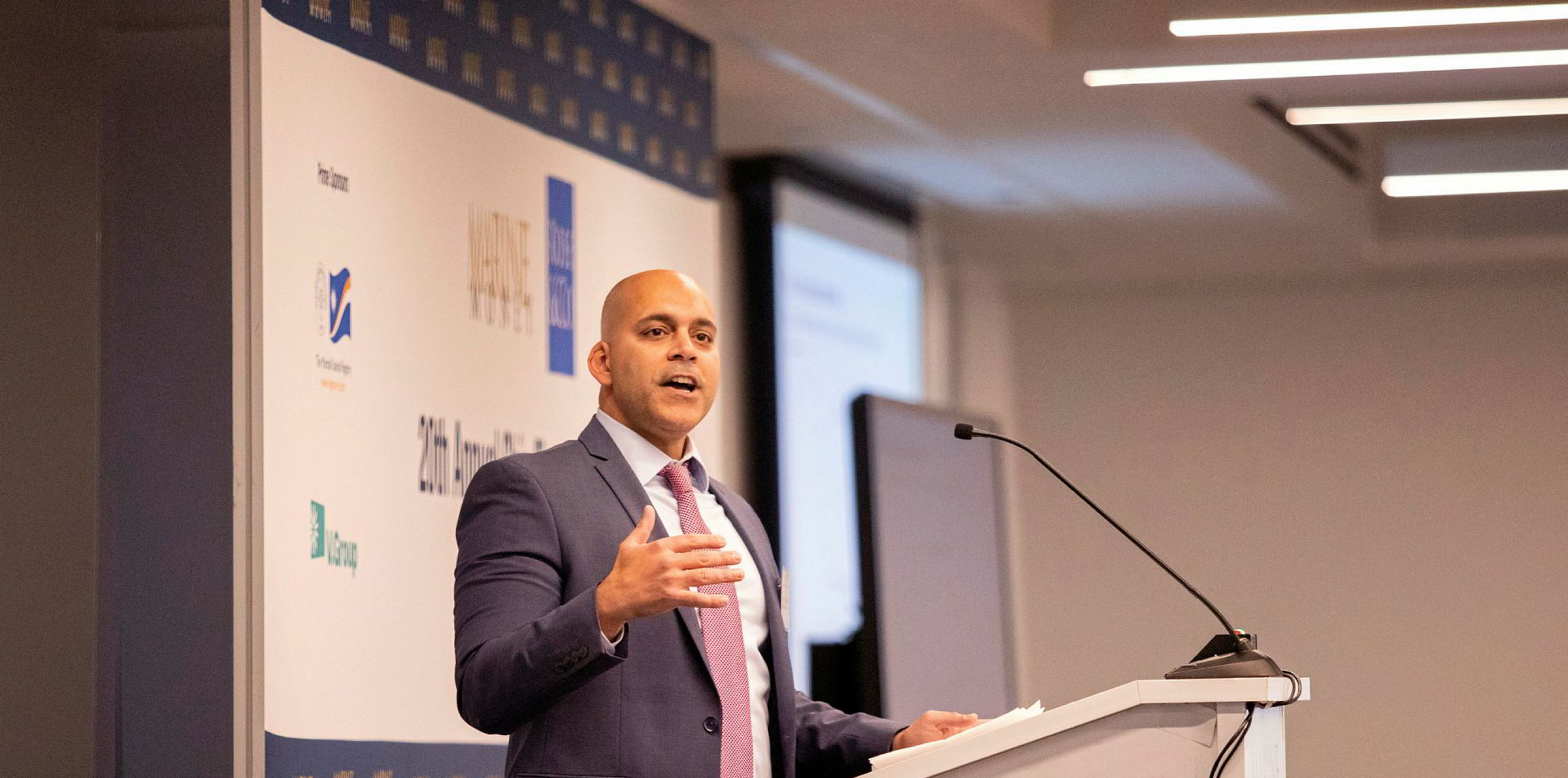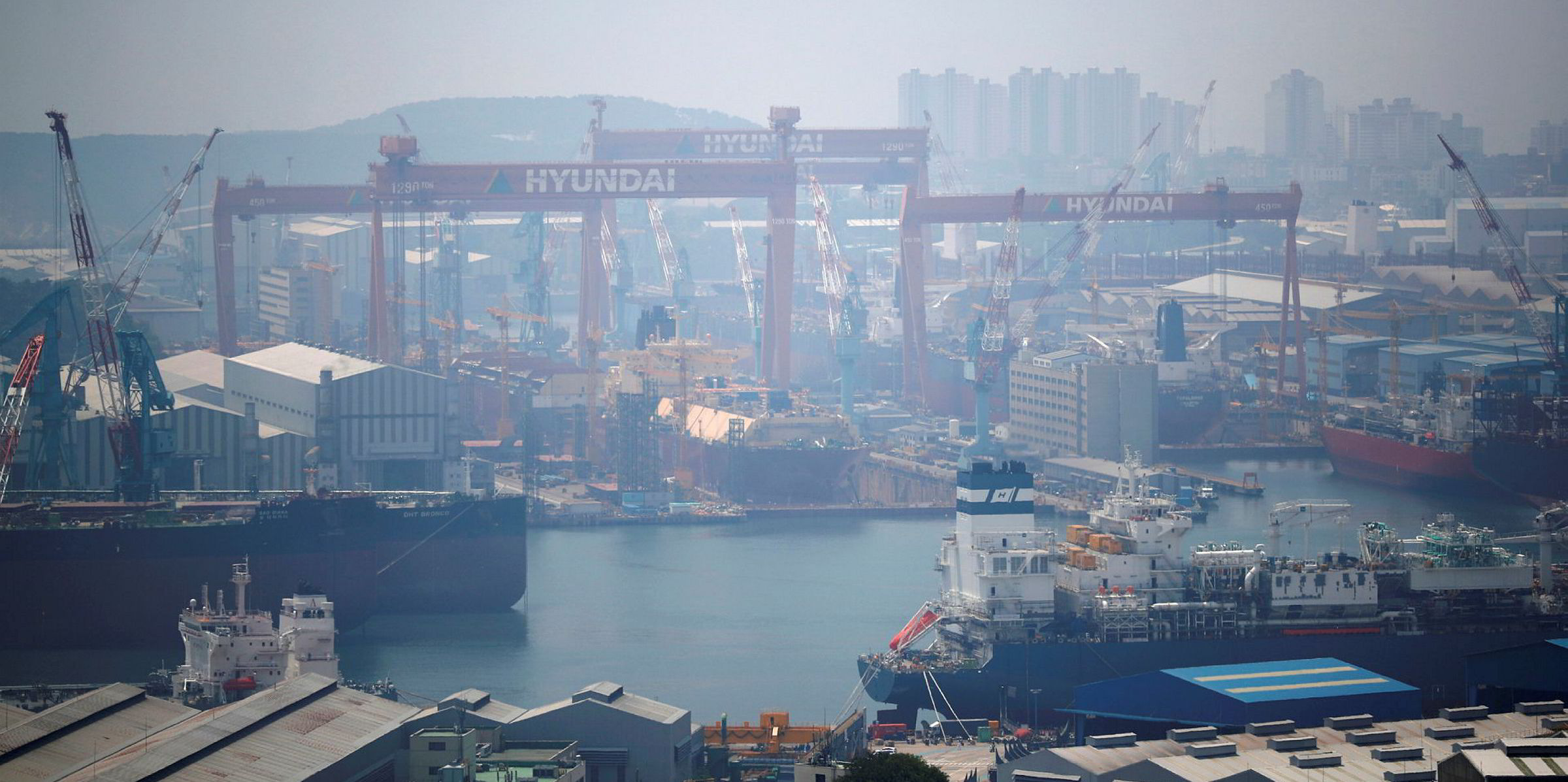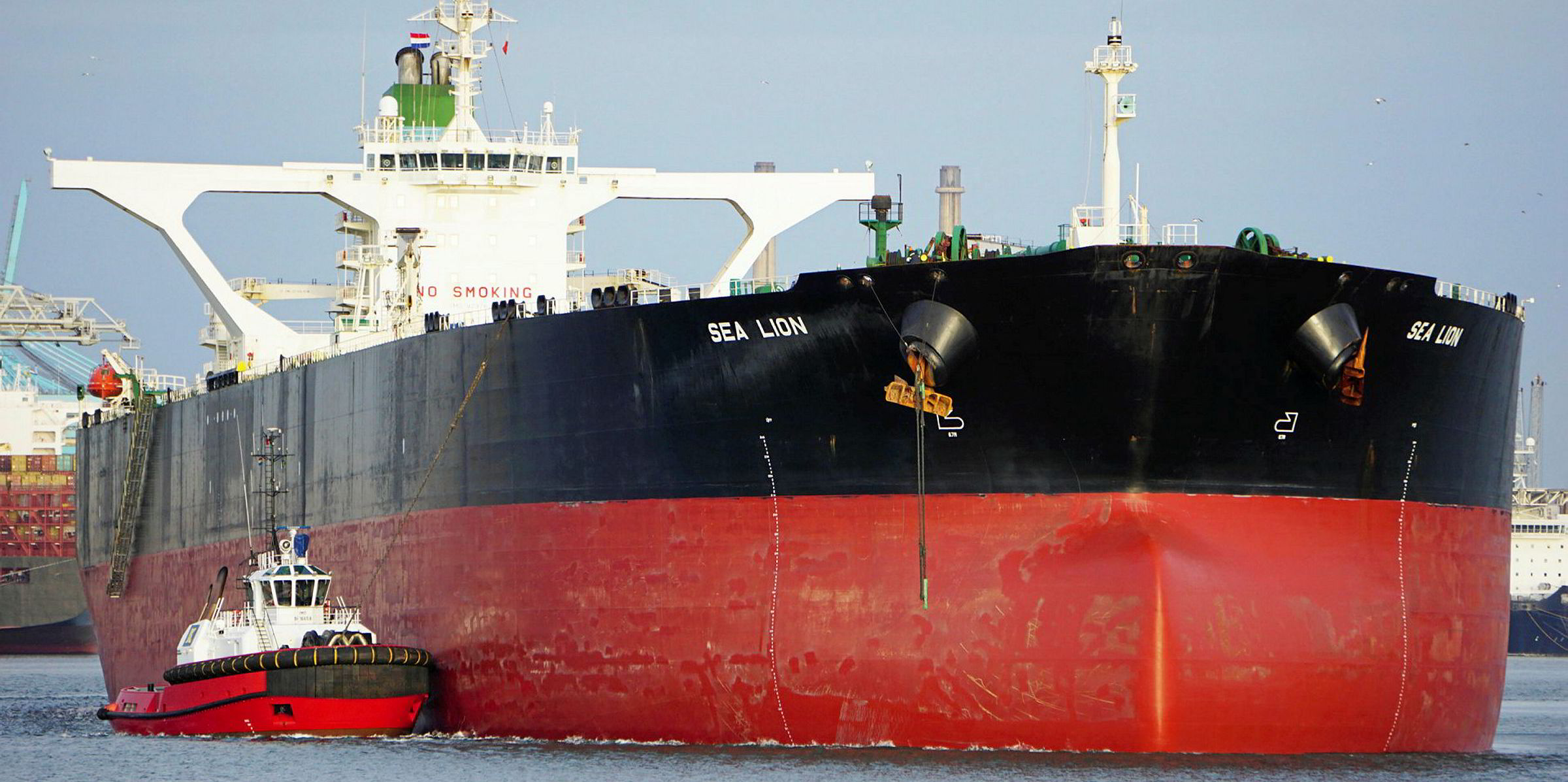A widening oil price contango has prompted Clarksons Platou Securities to predict VLCC rates have reached their lowest point and could now head up again.
Frode Morkedal and Omar Nokta, analysts at the investment banking arm of broker Clarksons, said the three-month Brent spread is $1.35 per barrel.
"Overall we believe the contango is still not wide enough to entice new floating storage, but this could quickly change should the contango widen further," they added.
The increasing contango, in which oil futures are priced higher than current prices for the commodity, means there will probably be no immediate return of any more VLCCs to the market from existing storage deals.
"Indeed, there could possibly be an increase in floating storage from here on," the analysts said.
UK shipbroker Howe Robinson Partners assessed VLCC spot rates on the benchmark Middle East-to-Asia route at $10,600 per day.
"Chartering all over the world on VLCCs seems to continue at slow steam, perhaps more abeam than ahead at the moment," the broker added.
Charterers keep pressure on
Howe Robinson said limited cargoes are taking their time to trade as charterers continue to "keep their pressure on the underactive market in terms of volume."
Average VLCC earnings were up at $13,700 per day, according to Clarksons Platou figures, helped by lower bunker prices and slightly improved West African export market where activity has increased the last few days.
Higher Libyan oil production at 1m barrels per day after the lifting of force majeures has also combined with demand coming under pressure from new lockdowns to widen the contango.
Norwegian investment bank Fearnley Securities said the November Middle East VLCC loading programme is in full swing.
"There is little suggesting increased winter demand and higher rates," analysts Espen Landmark Fjermestad, Peder Nicolai Jarlsby and Ulrik Mannhart said.
The Middle East and West Africa look weaker, they added, with little support coming from the US Gulf.
"Several owners have opted to dry-dock vessels in the depressed environment, but in many cases these vessels have become sitting ducks on the return to the trading fleet," the analysts said.
Death knell for recovery?
Fearnley believes new pandemic restrictions and Libyan production pushes the normalisation of inventories further out.
"While we expect many lessons to have been learned from the second quarter oversupply, inventories at elevated levels naturally raise the likelihood of a new wave of floating storage," the analysts added.
"However, we do believe OPEC+ is more prepared this time around and will be able to act quicker through supply-side adjustments, making a potential new storage spike of less magnitude and more short-lived."
Fearnley said more floating storage would help rates in the short term, but would be "the nail in the coffin" for a sustained tanker market recovery over the next two years.






